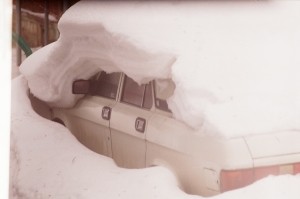While the winter this year started off mild, the last few weeks have more than made up for the slow start. Boston and much of New England has been hit by a series of blizzards and named winter storms, which have left blankets of snow and ice with amounts far exceeding predicted totals.
 Just when it seemed like the city finally managed to dig itself out, more snow has hit the area.
Just when it seemed like the city finally managed to dig itself out, more snow has hit the area.
It is for this reason City officials are urging people to stay off the roads and let plow drivers and utility crews safely do their work. The more cars on the road, the more dangerous it is to road crews, and the more likely serious automobile accidents will occur.
This is especially true on weekends. During the week, it is easier to convince people to stay of the roads, since many people are glad for any opportunity to stay home from work.
On the weekend, however, people are much less willing to miss out on their planned activities and tend to ignore these warnings. Work crews are featured on the news on a nightly basis with reports of two wheel drive, and even rear wheel drive vehicles crashing and getting stuck that had no business being on the road in the first place.
Our Boston car accident lawyers urge you and your family to be safe during this winter weather and don’t drive unless it’s a necessity.
According to a recent news article from Mass Live, state transportation officials are doing what they can to prevent accidents due to deteriorating conditions, including lowering speed limits to 40 mph and banning tandem tractor-trailers and propane trailers from driving on highways during icy weather. Tandem tractor-trailers are vehicle setups involving a tractor (truck) pulling a semi-trailer, and then another trailer coupled onto the back. This type of setup is extremely dangerous in wintery conditions, as they are much more prone to jackknifing. When a tractor-trailer “jackknifes” the trailer swings across the roadway in a different direction from the driver’s cab and can be deadly to other vehicles on the road. The trailers can also uncouple and cause damage far away from where the trailer initially loses control. Propane trailers have the obvious danger of exploding, but in addition to that, being liquid haulers makes it much harder to stop on icy roads. The difficulty is because the liquid in the tanker will still be moving after the truck comes to a complete stop. When the liquid slams into the bulkhead or series of bulkheads inside the tank, it can violently push the tanker truck forward, even when brakes are fully applied.
It is important to keep in mind that a tanker truck driver knows or should know of this risk of accidents due to shifting liquid and has a duty to drive in such a manner to avoid accidents from occurring. A tanker truck driver cannot cause an accident and then claim it is not his or her fault because the liquid in the truck shifted in a manner as to cause an accident.
If you are injured in an accident in Massachusetts, call Jeffrey Glassman Injury Lawyers for a free and confidential appointment — (617) 777-7777.
More Blog Entries:
Estate of Sholberg v. Truman – Fatal Car Accident Caused by Stray Horse, July 17, 2014, Boston Car Accident Lawyer Blog
 Boston Car Accident Lawyer Blog
Boston Car Accident Lawyer Blog

